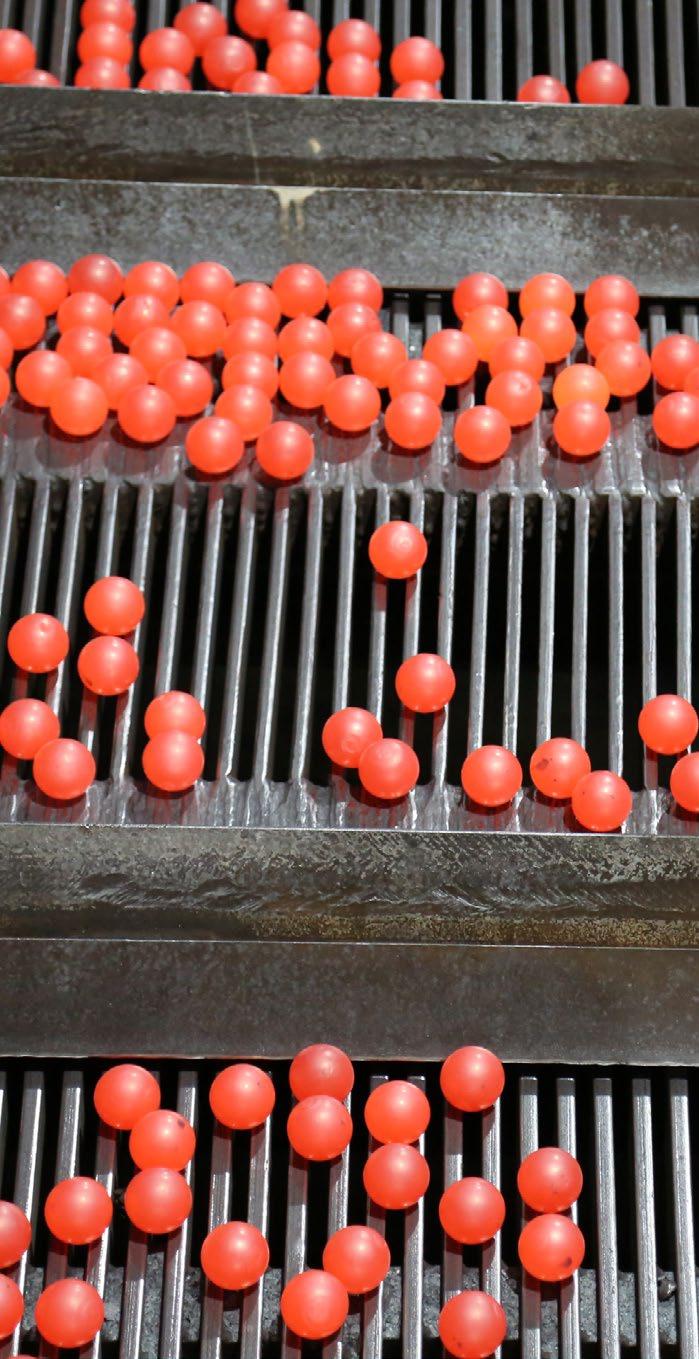
10 minute read
Molycop Awarded Industry Commercialisation Grant
NEWCASTLE-BASED MINING CONSUMABLES PRODUCER AND STEEL MAKER, MOLYCOP, IS ONE STEP CLOSER TO IMPLEMENTING THE UNIVERSITY OF NEW SOUTH WALES (UNSW) PATENTED POLYMER INJECTION TECHNOLOGY (PIT) FOLLOWING THE AWARD OF A COMMERCIALISATION GRANT FROM THE AUSTRALIAN GOVERNMENT’S ADVANCED MANUFACTURING GROWTH CENTRE (AMGC).
The commercialisation grant was announced in late 2021 by the Acting Minister for Industry, Science and Technology, Angus Taylor. The grant will be utilised to implement PIT at Molycop’s Waratah Electric Arc Furnace (EAF) steelmaking facility and support research to further develop the technology.
Advertisement
This innovative technology is also known as SMaRT@UNSW Green Steel technology. It provides a responsible and sustainable recycling solution for end-of-life polymer materials such as tyres, conveyor belts and other rubber products. Industrial rubber boot manufacturer, Crawford Boots, will also partner with Molycop and UNSW to further enhance the recycling capability of this innovative technology. The technology enables the recovery and reuse of carbon and hydrogen from end-of-life rubber products in the EAF steelmaking process and the introduction of this technology simultaneously: • Reduces Molycop’s reliance on imported carbonaceous materials from China • Reduces the volume of problematic wastes going to landfill • Improves energy efficiency of the
EAF steelmaking process • Further reduces the carbon intensity of Molycop’s steel products
The total investment in this project is $2.4 million which includes the AMGC grant, Molycop’s capital investment and the funding of ongoing research and development activities and trials to further increase this innovative technology’s resource recovery and recycling capability.
Acting Minister for Industry, Science and Technology, Angus Taylor, said that the recipients of this grant are a testament to the ingenuity of Australia’s manufacturing sector.
“The Commercialisation Fund is about supporting businesses to bring their outstanding products and services to new Australian and international markets, which helps to grow our economy and deliver jobs for local workers,” Minister Taylor said.
“These grants enable businesses to undertake commercialisation activities such as research and development,
ACCELERATING INNOVATION IN NATIONAL MANUFACTURING PRIORITIES THROUGH AMGC'S COMMERCIALISATION FUND
The $30 million Commercialisation Fund is designed to foster projects that bring industry and researchers together to commercialise new manufacturing products and processes. Consistent with all programs under the Modern Manufacturing Strategy, this fund is supporting projects within the Government’s six National Manufacturing Priorities. These priorities are: Medical Products, Food and Beverage, Resources Technology and Critical Minerals Processing, Recycling and Clean Energy, Defence, and Space. Commercialisation Fund grants are between $100,000 and $1 million and must be matched by industry. These smaller-sized grants will complement the larger projects that will be supported through the $1.3 billion Modern Manufacturing Initiative.
AMGC Managing Director, Dr Jens Goennemann, said that the AMGC Commercialisation Fund had been established with the express intention of commercialising and transitioning new manufacturing products and processes.
“For the past five years, AMGC has been working with our manufacturers to identify and support promising manufacturing projects. These projects have resulted in an uplift in jobs, skills and Australia’s global competitiveness and the latest round of funding will allow us to continue the good work,” Dr Goennemann said. “This funding supports AMGC’s vision to transform Australian manufacturing to be internationally competitive, dynamic and thriving, with advanced capabilities and skills at its core – in short, we want to help Australia move from being a lucky country to a smart one.”
investing in technologies that will assist them to scale up their operations, and securing further investment to grow even more.”
Molycop is already one of the largest supporters of investment in renewable energy in Australia through its offtake agreements with both Bowman Solar farm and Sapphire Wind farm. Its steel products have over 90% recycled content.
Molycop Australia President, Michael Parker said, “The implementation and further development of this green steel Polymer Injection Technology will further cement our position at the forefront of responsible and sustainable steelmaking."
"Molycop is committed to building the circular economy, recovering and reusing valuable materials from waste streams, reducing our carbon footprint and supporting customers’ sustainability goals."
Molycop is also licensed to commercialise the technology internationally and is currently in discussions with international steelmaking companies.
ESTABLISHMENT OF MOLYCOP 360
To further enhance the company’s resource recovery capability, in April 2021 Molycop acquired the assets JLW Services provided integrated logistics, waste management and resource recovery solutions for businesses, government, councils, and the community. The company specialised in waste management and resource recovery services for problematic waste streams, including end-of-life tyres, mattresses, conveyor belts and IBCs.
In recent years, Molycop became a key customer of JLW Services, consuming the scrap steel generated from mattress and tyre processing in its EAF steelmaking process in Newcastle.
“Molycop has been manufacturing and supplying essential steel products to vital Australian industries, including mining and rail transport, in Newcastle for over 100 years and is very proud to be supporting regional employment through the acquisition of JLW Services," said Parker.
In October 2021, Molycop 360 became an accredited participant of Tyre Stewardship Australia in a commitment to developing sustainable markets and uses of end-of-life tyres and tyre derived products. “With the launch of our resource recovery business, Molycop 360, we are committed to liberating value from waste streams," said Parker.
“Our capability to collect and process end-of-life tyres (and other industrial rubber products) complements our integrated EAF steelmaking operation. The steel, carbon and hydrogen content of end-of-life tyres can be recovered and reused in the EAF steelmaking process, thereby reducing the consumption of virgin raw materials."
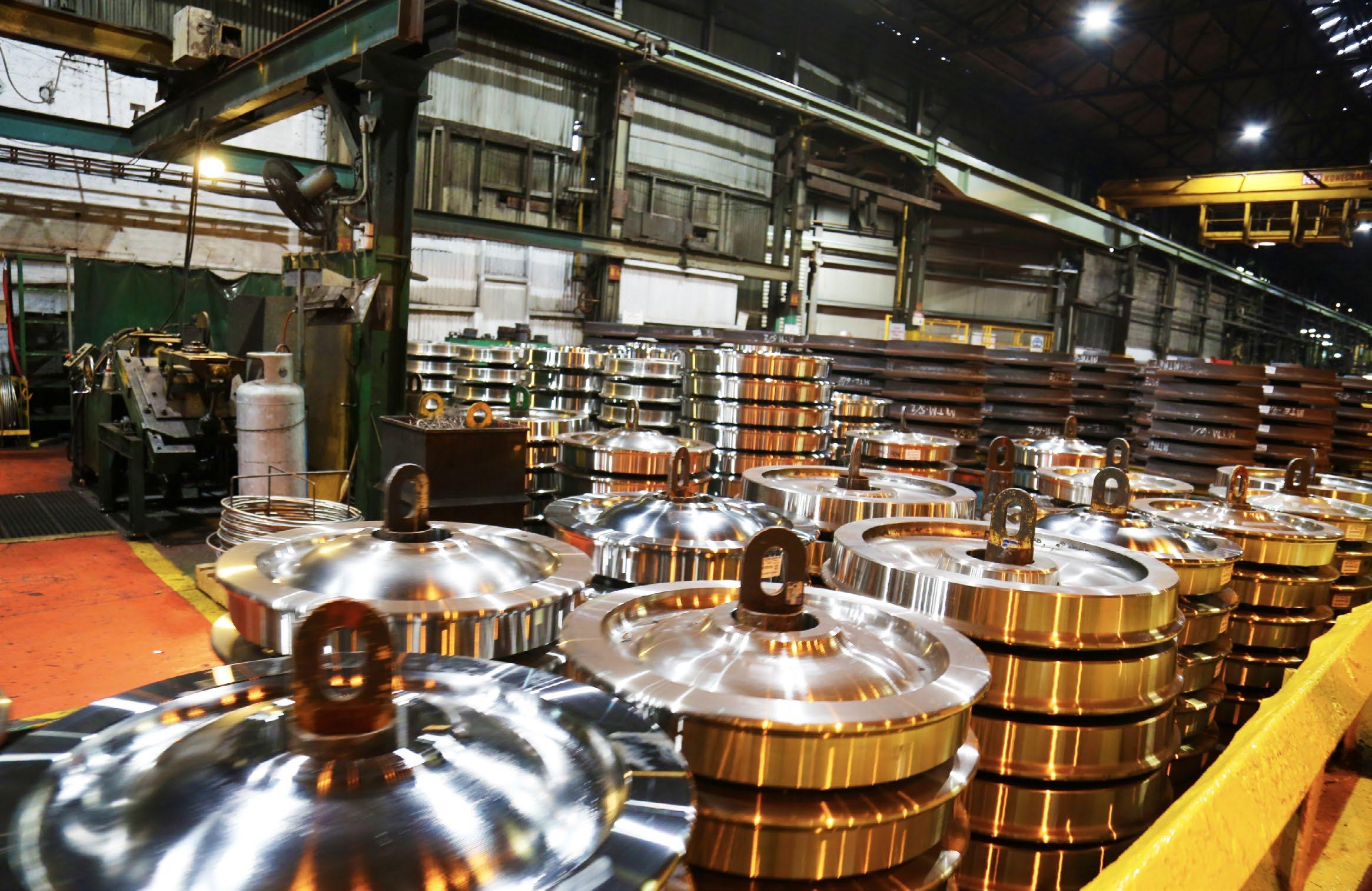
WHAT IS POLYMER INJECTION TECHNOLOGY?
Polymer Injection Technology is a process that leverages high temperature reactions in electric arc furnace (EAF) steelmaking to transform waste tyres and plastics in the production of high‐quality steel. By focussing on the evolution of carbon properties at high‐temperature conditions.
Director of the UNSW Sustainable Materials Research and Technology (SMaRT) Centre, Professor Veena Sahajwalla, completely overturned how the properties of carbon‐bearing materials are understood, bridging the gap between both pure and applied research, as well as between research and application.
The operating efficiency of EAF‐steelmaking (responsible for 40% of global production) is largely dictated by carbon/slag reactions, associated gas evolution and slag forming. In Sahajwalla's world‐first patented Polymer Injection Technology process, a mixture of coke and recycled polymers have been shown to produce a more stable foamy slag compared to coke only – greatly improving furnace energy efficiency, and yield while reducing raw material cost (without detriment to furnace functioning or the finished product).
Steel produced through Polymer Injection Technology is in commercial production around the world – having been installed and commercially operated in EAF steelmaking processes in two domestic and five international sites (in five different countries), resulting in overall cheaper production costs. Furthermore, Polymer Injection Technology’s steel has been named as an ‘Innovation that could change the way we manufacture’ by the US Society for Manufacturing Engineers.
The commercialisation and ongoing sub‐licensing of Polymer Injection Technology and the resultant steel, in Australia and overseas, has demonstrated the many benefits of considering the composition and behaviour of waste streams at their molecular level. Sahajwalla has subsequently opened up numerous new pathways for the transformation of complex waste streams into practical, commercially viable ‘green materials’ for production. “Molycop’s goal is to continue to develop and expand its capability to provide resource recovery solutions for our customer’s problematic waste streams. In the case of tyres, such a solution is becoming critically important given the impending waste tyre export ban which came into effect in December 2021," said Parker.
Tyre Stewardship Australia is an industry-led initiative by major tyre importers and auto brands and was recognised as best practice product stewardship by the Federal Government in March 2021. The Tyre Product Stewardship Scheme recognises sustainable end-of-life tyre management through an accreditation and auditing system.
“Having Molycop 360 join TSA as an accredited recycler is a positive step for increasing resource recovery in regional areas. These are the areas that face the most challenges when it comes to sustainably managing end-of-life tyres."
"The fact that Molycop 360 can recycle all types of tyres including passenger, SUV, 4WD, heavy truck and, most importantly, off-the-road tyres is a real benefit to the recycling industry”, said Lina Goodman (CEO, Tyre Stewardship Australia).
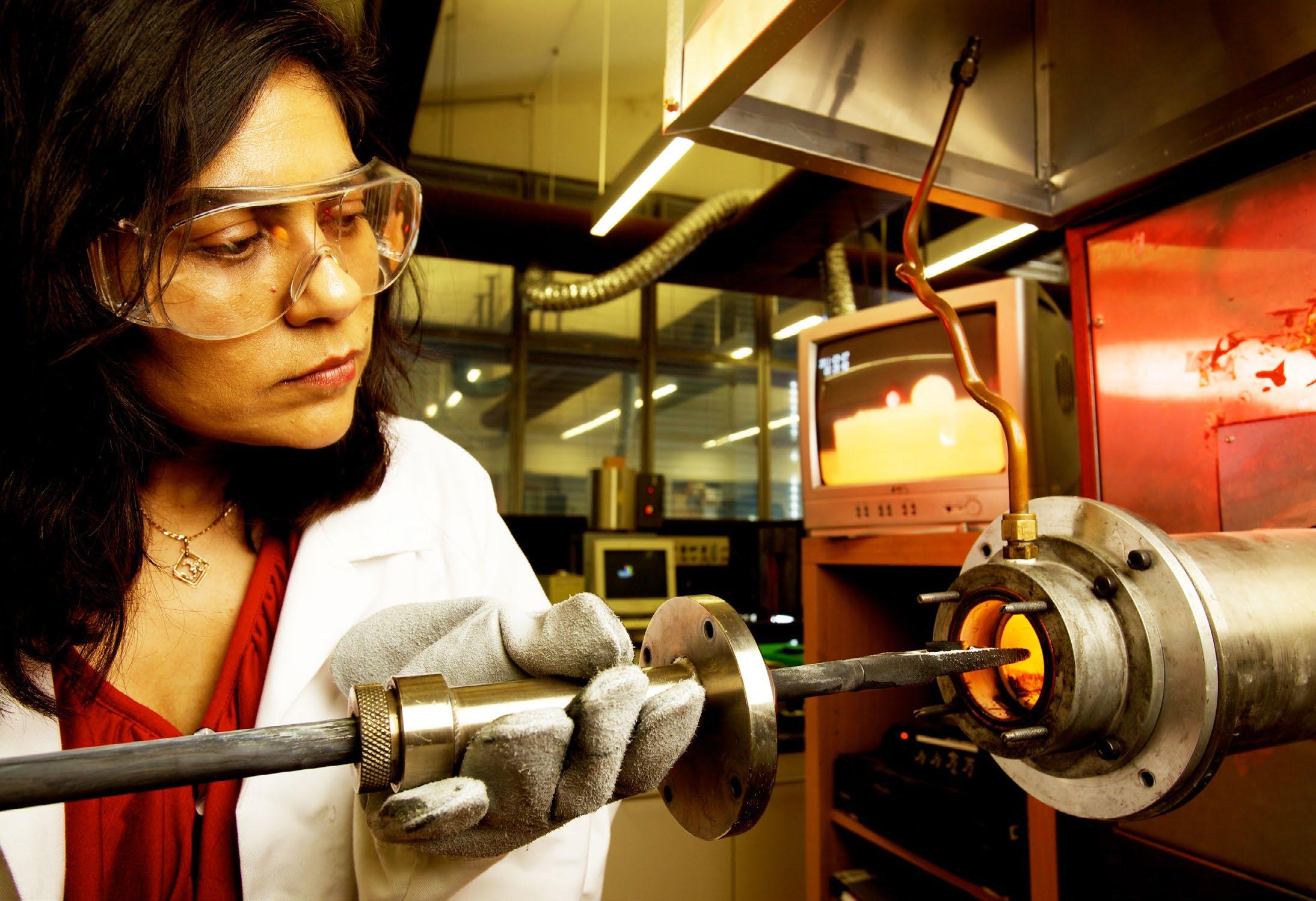
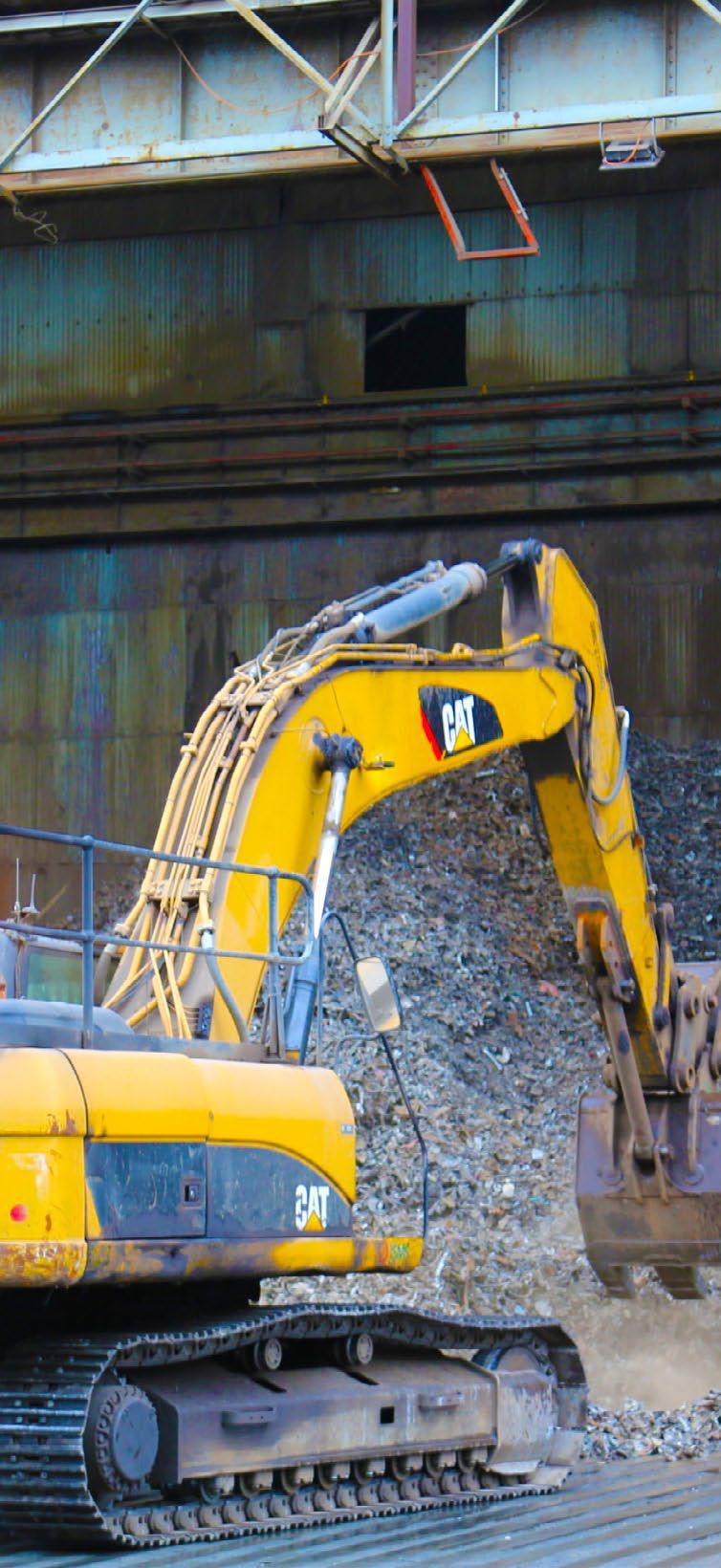
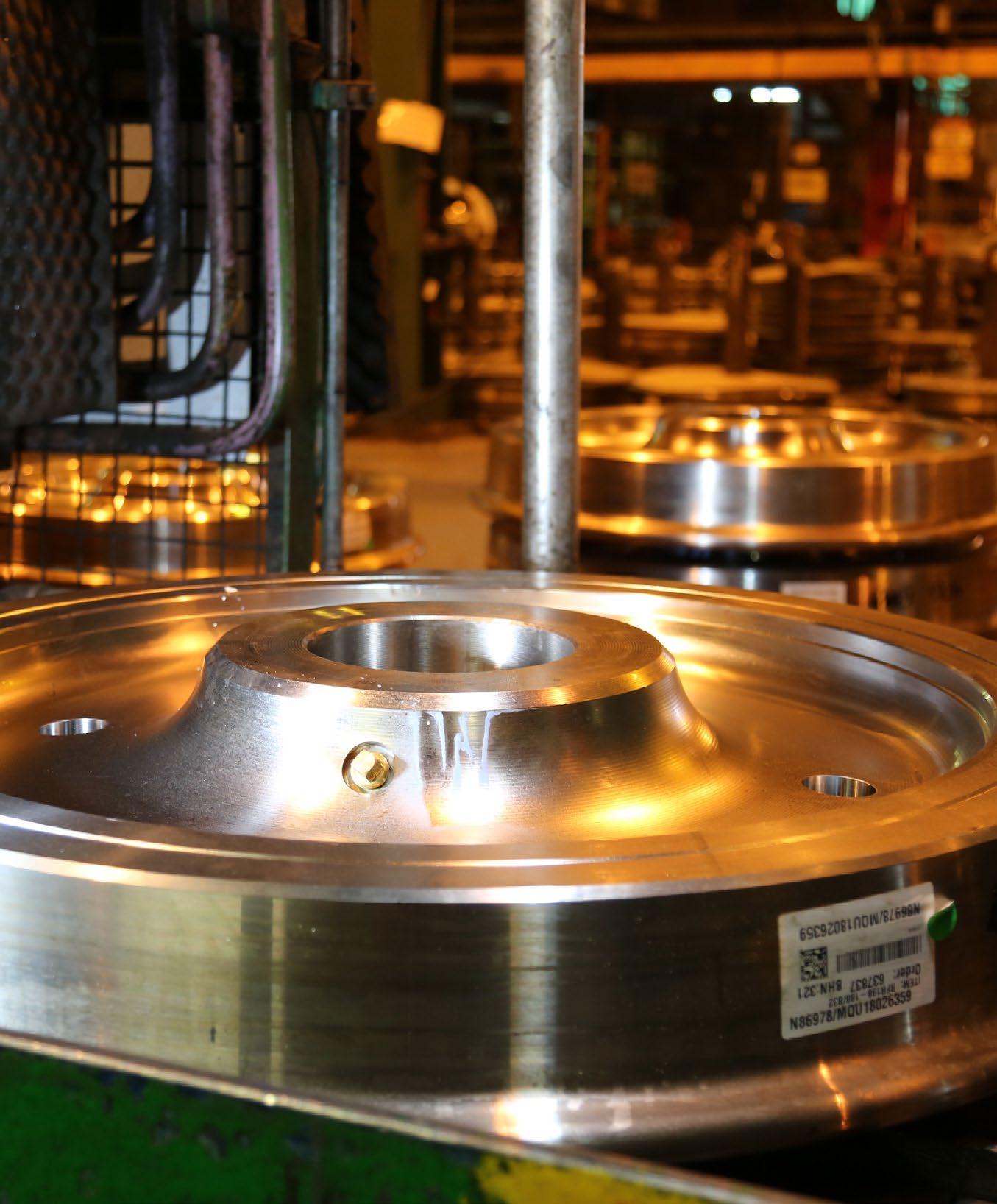
SMART@UNSW CENTRE
Founded in 2008 by ARC Laureate Fellow, Professor Veena Sahajwalla, the Centre for Sustainable Materials Research and Technology (SMaRT) at UNSW works with industry, global research partners, not-for-profits, local, state and federal governments, on the development of innovative environmental solutions for the world’s biggest waste challenges.
Professor Sahajwalla, who invented the patented PIT, congratulated Molycop for its commitment to both implementing and further developing SMaRT@UNSW Green Steel technology as part of its sustainability leadership.
“The AMGC grant will enable Molycop to work towards fully operationalising our existing technology in its Newcastle facility,” Sahajwalla said.
“And what’s also exciting is that we are collaborating in developing our Green Steel 2.0 technologies, which we are confident will at some point in the future allow us to be able to fully replace coking coal in EAF steel making with a range of waste materials." "Being able to release carbon and hydrogen from waste as a resource improves overall efficiency and helps us move towards decarbonisation because hydrogen is present in waste," Sahajwalla said.
The SMaRT Centre at UNSW is focused on the idea of materials being produced by using waste and end‐of‐life products as raw materials and the concept of green manufacturing as value-adding.
Originally in partnership with OneSteel, the SMaRT Centre developed a process to make green alloys, using end‐of‐life rubber tyres and waste plastic as an alternative to coking coal. Many millions of passenger vehicle tyres have been diverted from landfill in Australia, and the technology has now been commercialised here and overseas in countries including South Korea, Thailand, the United Kingdom and Norway.
The SMaRT Centre has shown that the technology of polymer injection into steel making is successful on a commercial scale and that has huge beneficial outcomes for the manufacturing industry as a whole, while at the same time demonstrating the successful translation of research into industry.
The SMaRT Centre takes a holistic approach to manufacturing. Their aim is to take their research, which is making real-world impact, and to disseminate those ‘green social technologies’ to enhance sustainable economic growth – particularly in regional areas of Australia and developing nations internationally.
The SMaRT Centre is now carrying out new research into using waste bioresources like coffee grounds, plastics and rubbers, and their application in steel making.
This includes not just using more wastes with the aim of one day replacing the need for coke and coal in EAF steel making, but using waste resources as a source of the vital steel making ingredient of hydrogen for an overall more efficient process requiring less energy.
AUSTRALIAN STEEL CONVENTION 9 – 11 OCTOBER 2022

REGISTRATION OPEN

The Australian Steel Convention 2022 brings together key industry leaders and innovators to discuss opportunities, showcase industry successes and examine what the future can and will look like.

Australian steel is vital to this country’s economy, stability, and growth. While the global stage is learning to adapt to an ever-changing landscape, Australia’s steel industry has an opportunity to thrive by delivering high-quality products through a robust and effective supply-chain. As billions of dollars are being invested in both civil infrastructure and domestic homebuilding, the opportunities for the steel sector are immense. From research to design, manufacturing, and fabrication, through to installation and construction, the future of Australian steel looks bright. Brighter still when consideration is given to the ever-growing dependence on steel across sectors and the burgeoning of a new era of endless innovative uses to propel Australia towards a new economy. In an everchanging global landscape, the Australian steel industry needs to be prepared to adapt to advancing technologies, sustainability, and environmental concerns and a rapidly changing economic outlook. As an industry, Australian steel has shown its ability to innovate and adapt. In today’s environment, these qualities have never been more important. Honest discussions, value for money propositions and the ability to think outside the steel box, will all be on display at this year’s convention.
BE SURE TO REGISTER FOR THE DEDICATED FABRICATORS FORUM
HONEST DISCUSSIONS
VALUE FOR MONEY PROPOSITIONS
OUTSIDE THE STEEL BOX THINKING











